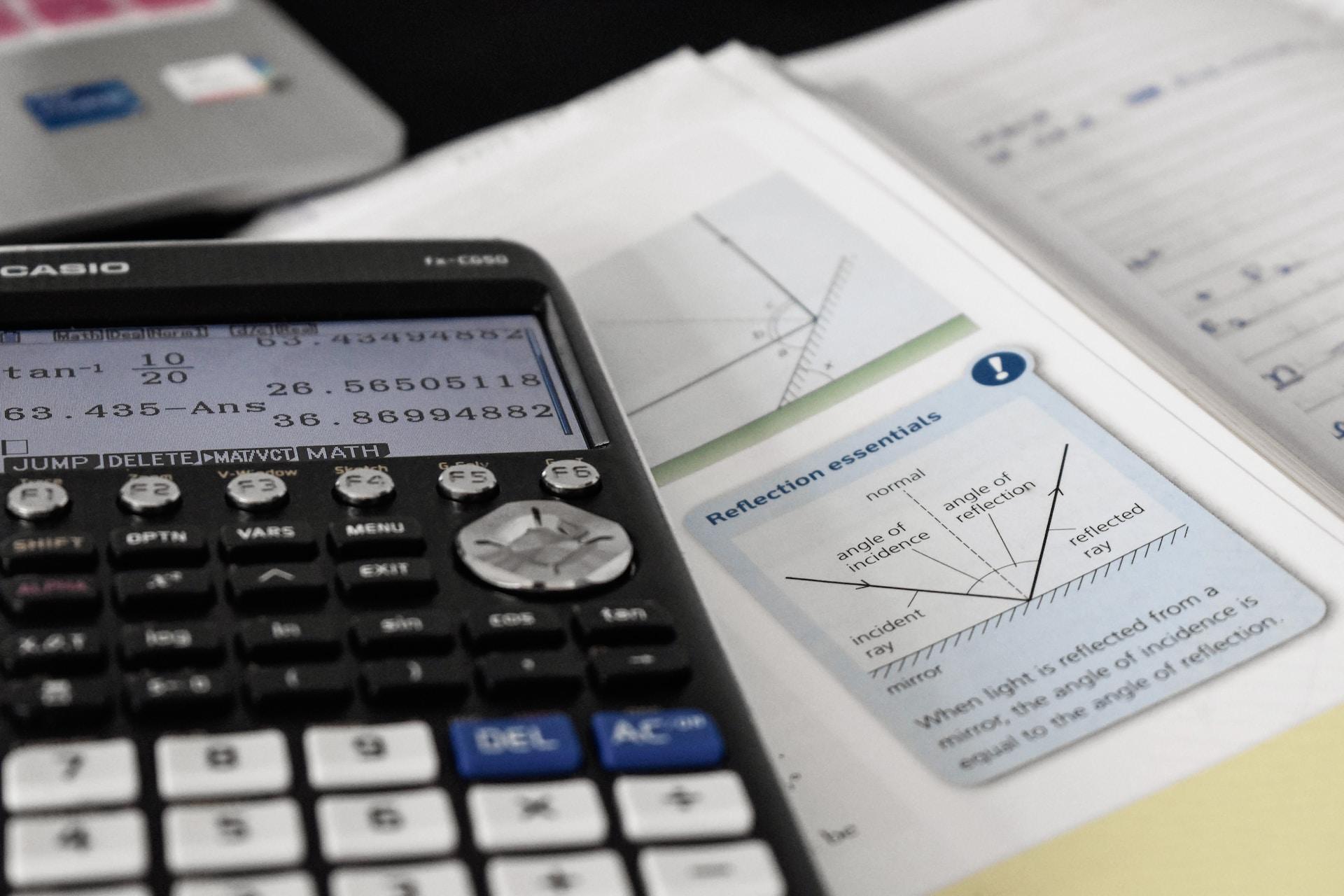For students in years 11 and 12 in Victoria, Australia, the Victorian Certificate of Education or VCE is the academic qualification they'll be looking to get. There are other options available for different students, but in this article, we'll be looking at the VCE and choosing subjects for it.

What to Consider When Choosing Your VCE Subjects
The VCE is administered by the Victorian Curriculum and Assessment Authority (VCAA) and offers over 90 different subject choices.

Students must complete at least 4 subjects (or 16 units, with most subjects made up of 4 units), but most students will choose 5 or 6 subjects.
Narrowing down nearly 100 subjects to just 5 or 6 might be easy for students who know exactly what they want to do, but for many students, choosing VCE subjects requires a lot of thought.
Let's see what you should consider when choosing your VCE subjects for years 11 and 12.
The VCE Requirements
To be awarded the VCE at the end of year 12, there are certain requirements from the VCAA that you need to take into consideration when choosing your subjects.
As we mentioned before, students must complete 16 units. Most subjects are divided into 4 units: Units 1 and 2 are usually done in year 11 and Units 3 and 4 in year 12.
The requirements also include three units from the “English group” of subjects with a Unit 3-4 sequence (so units, 1, 2, and 3 wouldn't satisfy this requirement, for example).
The requirements also include three Unit 3-4 sequences, which means half of your units must be the latter half of the subjects or the parts of the subjects you typically study in year 12.
You can always study more than one subject from the English group, but you'll have to complete at least one to be awarded the VCE so think carefully which you'll choose.
Your Interests
You're going to be studying these subjects for two years so you must pick subjects that you don't hate.

While there may be subjects you dislike that are excellent choices for other reasons, it'll be much more difficult to stay motivated and succeed if you hate every class you have to attend and then have to spend hours studying for assessments and exams on things you find boring.
It's much easier to learn something that you're interested in as this will keep you engaged with the subject matter even during the boring bits.
There's nothing wrong with considering VCE subjects that you like or are interested in.
Your Career
Much like with your interests, you can choose your VCE subjects according to what you want to do in the future.
Students that want to study medicine won't choose the same VCE subjects as those wanting to become lawyers or work in business.
Think about the subjects that relate to the career you'd like in the future and prioritise those.
If you're considering going to university or onto further study (TAFE, for example), the decision may become quite easy for you as certain subjects are non-negotiable for certain courses.
If you're considering doing a degree in maths, it's probably quite key that you do Maths Methods and Specialist Maths (two of the more difficult VCE maths choices) whereas neither will be necessary for applying to a foreign language degree.
Difficulty
Difficulty is an important consideration when choosing your VCE subjects, not because subjects scale or anything like that, but because you need to choose a workload that you can manage.
You don't want to pick subjects that might be too easy because you'll find yourself getting bored in class, but you can't just pick the most difficult subjects because you'll run the risk of overextending yourself and underachieving.
With your subject choices, you'll want a range of subjects of different difficulties according to what you can manage. Think about the previous considerations for choosing subjects as well as what you're capable of.
Give yourself a workload that's challenging but also manageable.
A Good Balance
Don't forget that your subject choices are all about finding the perfect combination of subjects for what you want to do with subjects that you find interesting and a workload that you can manage.
Balance is key.
If you're choosing mostly science and maths, it might be worth finding a less mathematically intensive subject to balance out your options, especially if the other subjects already meet the requirement for what you want to do in the future.
You can have too much of a good thing and even if you really love science and maths, it can be refreshing to have another subject just to break the monotony of studying the same stuff relentlessly.
There are over 90 subjects to choose from so while you'll likely be focusing on a particular area, there's nothing wrong with picking a subject to balance things out, especially if it's something you're really interested in but don't necessarily consider part of your future career.
Your Strengths
You know yourself better than anyone else. It's a really smart idea to pick VCE subjects that work with your strengths.
After over a decade in school, you'll probably have a pretty good idea of what you're good at. While this doesn't mean you have to automatically pick all the subjects you've been good at until now, it might help to look at related subjects or subjects that use similar skills to the ones you excel in.
It's also worth remembering that your skills extend beyond just your lessons at school. Think about how you like to work, too. You may find that certain subjects that are good on paper won't necessarily work with your strengths and vice-versa.
The VCE Subject Study Design
The best way to really understand each VCE subject is by seeing what the course entails. There's nothing worse than choosing a subject you've enjoyed so far to find that it drastically changes once it becomes a VCE subject. The same can be true at university, by the way, so think about that as well.
Fortunately, everything that makes each VCE subject is publicly available on the VCAA website in comprehensive documents known as Study Designs. The Study Design for each subject outlines exactly what's taught as part of the course and what students are expected to know to pass assessments, coursework, and exams.
There's also a nice outline of the course. If you like what you see here, keep reading to see what you'll get to study in the course.
Advice from Others
Remember that parents and teachers can help you make your choice. They don't have to make it for you, but they can offer advice on which subjects they think are a good choice for you and the career you'd like while taking into account your performance at school in certain subjects.
The Most Popular VCE Subjects
If you're still really lost, it might help to see some of the other popular VCE subjects for a bit of inspiration. While you shouldn't just do all the most popular subjects, seeing which ones are often picked by other VCE students will probably help you narrow the 90-something subjects down to a more manageable list of potential subjects.

According to the VCAA, these were the most popular subjects by enrolment in 2022:
- Legal studies
- Physical education
- Chemistry
- Biology
- Health and human development
- Business management
- Maths methods
- Psychology
- Further maths
- English
The VCE Subjects That Scale the Most
The VCAA uses a method called scaling to adjust subject results (study scores) to make them comparable to one another. While study scores are graded on a distribution curve with the average student score being given 30 out of 50, these scores are then adjusted or scaled to make them comparable.
How exactly this is done is through statistical analysis and some maths that you don't need to know about here, but the subjects that scale upwards are those that are either generally quite difficult or chosen by the highest-performing students.
Most science subjects scale upwards to some degree with chemistry scaling more than physics and biology. In maths, the more advanced VCE maths subjects like Maths Methods and Specialist Maths can scale up quite a lot.

Languages Other Than English (LOTE) subjects also scale a lot. Latin scales up by a lot most years along with other foreign languages like Hebrew, French, Chinese, Korean, etc.
Again, this scaling is more an indicator of relative difficulty to other subjects, but that doesn't mean you shouldn't choose them. Just make sure that you know that your raw study score can be low even if you perform really well.
Just make sure you take all of this into account when choosing your VCE subjects!
Summarise with AI:
















